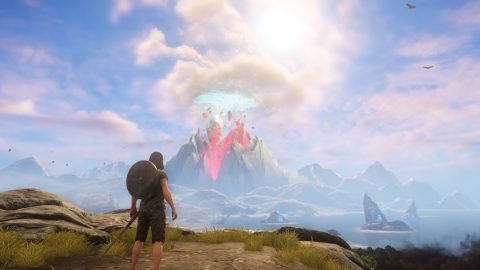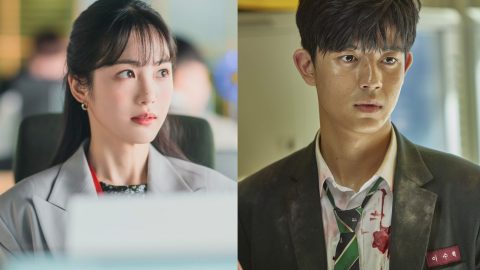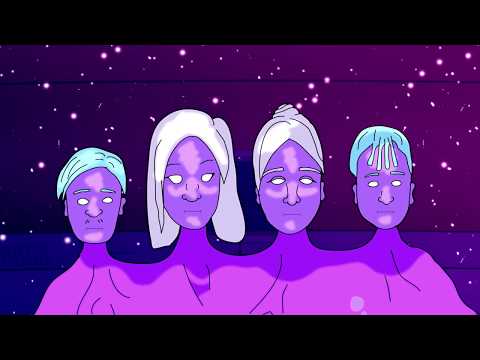
Last weekend, the Red Bull Gaming Sphere in London invited 16 world-class Street Fighter V players to compete in one of the first offline tournaments in over a year since the pandemic shut everything down. Even without any of Capcom Pro Tour events, the chance to see members of the fighting game community (FGC) come together again to compete in person was like Christmas and New Years combined.
While video games is one of few sectors to have thrived during the past year as people spent more time indoors isolating, live events like conventions and esport tournaments have faced a bigger challenge, learning to adapt to an awkward digital presence. Nowhere was this more keenly felt than the FGC. It’s not just the scene’s history, where players would meet up and cram into arcades shoulder to shoulder to learn from and play against one another, but fighting games are also so dependent on making split-second decisions within frames that online competitions are often reviled due to fears of bad lag.

Making Red Bull Kumite London feasible came with its own limitations: Outside of Amar “Boltstrike” Sangha, who qualified through the UK-exclusive online last chance qualifier, the event was an invitational with no public invited. While there’s still something sad about seeing a gaming venue only able to function as a studio, once the competitors sat down facing each other, with fight stick or controller in hand, going round after round at the top of their game, God, I couldn’t believe how much I missed it.
Normally, I’m bemused (and still am) by the concept of spectating video games, as I’d really rather just be playing the game myself. Fighting games are a different story, something I realised back in 2016 when I found myself staying up on a work night to watch Evo’s headline Ultimate Street Fighter IV tournament live from Las Vegas, and suddenly appreciated why people in the UK would stay up until silly hours for a boxing match. Lacking the skill or dedication to play fighting games at a competitive level myself, forever wallowing in the Bronze tiers of Street Fighter V, watching the pros at work is just more satisfying.
It’s not something I could say for other esport tournaments, especially team-based games where so much depends on the commentary and camera cuts to communicate what’s even happening. Sure, fighting games are highly technical with all kinds of terminology you’d need a glossary to appreciate, but they’re also essentially one-versus-one match-ups on the same screen as you see whose health bar gets destroyed first in very short rounds – it’s readable even for someone who knows nothing about fighting games.
#RedBullKumite Quarters were INSANE
Semis even BETTER
FINALS ARE GOING TO BE NUTS!!!!
Join here: https://t.co/XwRvWUtvbz pic.twitter.com/STYrPYuoXm
— Red Bull Gaming (@redbullgaming) May 23, 2021
High-level play isn’t all that I’ve missed, but also the drama, the pop-offs, the smacktalk, and surprises that can only come from a live event. That’s roundly amplified from the reactions of excited commentators like Femi “F-Word” Adeboye or Marie-Laure “Kayane” Norindr’s tear-filled joy over fellow Frenchman Nathan “Mister Crimson” Massol’s 5-4 victory against Capcom Cup champion Derek “iDom” Ruffin in the grand final.
It was a bittersweet result for France given how the previous Capcom Cup was supposed to have taken place in Paris before COVID scuppered it. Nonetheless, seeing Dhalsim player Mister Crimson bombarded with appreciation by his countrymen in celebration came close to the same elation when I joined a few sleep-deprived fans in a pub lock-in for Evo 2018 to see Benjamin “Problem X” Simon become the first British Evo champion in 10 years.
Kumite also shook up a lot of expectations running with some less familiar formats, such as a team tournament on the first day while the second began with round-robin group stages before the Top Eight were played as single elimination matches, which also removed the possibility of a player emerging victorious from the Losers’ side, where so many comeback stories have happened in the past.

Yet the results and upsets were also refreshing as former Evo champions Hajime “Tokido” Taniguchi and Problem X, and former Capcom Cup champion Tsunehiro “Gachikun” Kanamori failed to make the Top Eight while the lesser known Claude Eric “Hurricane” Diboti had his moment to shine. Part of that surely came down to how competitors were able to spend the weekend playing against each other in casual matches outside of the main tournaments, giving each player more opportunities to devise new strategies over their opponents. Considering how many of these players are used to meeting up in weekly competitions around the world, being able to do this again for the first time in over a year, it’s clear from their brief words to the presenters that many simply relished to get as many games together, barely disguising their dread of having return to the online gulag afterwards.
There are reasons to be optimistic, especially as the world is slowly but surely opening back up. This summer’s Evo – the first under new ownership from Sony – may still be online-only but Red Bull has already confirmed another offline Kumite in 2021, making up for lost time with two events this year.
Getting a bunch of the very best players together once again was an important reminder of what this community is all about, where elite-level play goes hand-in-hand with the electricity of competitors and onlookers in the same room to create a feeling we’ve sorely missed. It also reminded me that even though I’m hopeless at fighting games, I can’t help but love them.
You can catch up on Day 1 and Day 2 of Red Bull Kumite London on YouTube.
The post Red Bull Kumite reminds me how much I miss offline fighting game tournaments appeared first on NME.





